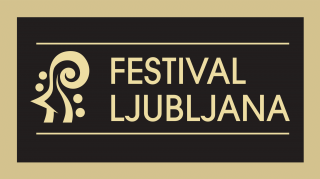1. Your musical career, from studying at the Academy of Music in Ljubljana to major international successes, has been an impressive one. What would you say has most shaped you as a composer on this journey?
What has shaped me the most is the experience of working with other musicians, who are also the people I’ve learned most from. And, of course, studying abroad, festivals, encounters with teachers, conductors, and so on, have also been enormously important.
2. This year you won one of the most important awards in the field of new music, the Erste Bank Composition Award 2024. What does winning an award like this mean to you? How do awards and prizes affect your motivation and your view of composing?
I was thrilled when I heard the news, because it’s a great honour. This award is like a confirmation of my work and my 20-year artistic career.
3. What was it like hearing the premiere performance of your award-winning work at the Wien Modern festival, performed by the prestigious Klangforum Wien ensemble conducted by Vimbayi Kaziboni?
Working with the Klangforum Wien was wonderful, we spent a lot of time on details, colours, mood. Both conductor and ensemble approached the piece with a strong sense for detail. The performance was very good and I am looking forward to the next ones.
4. Do you have a composition you are particularly proud of? If so, what in your opinion makes it special?
I can’t really answer that question. Every piece is special, because it was created at a specific time and has specific memories associated with it. I can say that I am more satisfied with my compositions from recent years, which is probably logical, but all my previous compositions are also important to me because of the journey I travelled with them.
5. What changes or trends have you noticed in contemporary music in recent years and how do you respond to them as a composer?
I like listening to new works because I’m interested in what is currently being performed at festivals of contemporary music. But I don’t look at this as a trend and I don’t respond to it myself – my path is mine alone and is defined in terms of my own thinking.
6. You have written a piece for brass quartet and quintet for the Ljubljana Festival International Competition. How did you approach writing this specific work, given that it will be performed in the context of competition?
The competitors will have the opportunity to show their ability for lyrical expression while also demonstrating their virtuosity. The work is designed to showcase the entire spectrum in a short space of time – from technique and musicality to ensemble playing, although I am mostly interested in their approach to interpretation.
7. Do you approach composing for brass instruments differently from composing for other instruments? What special opportunities and challenges do you see in writing for brass quintets and quartets?
Every instrument has its own specific characteristics, and this also applies to different types of brass ensembles. Before I started writing, I set myself a clear plan and chose material that would work with various ensembles, with both high and low brass instruments and with various combinations. That was the biggest challenge, how to adapt the piece to different ensembles without sacrificing quality.
8. Can you reveal any of the thematic or stylistic characteristics of the work you’re preparing for the competition? What message do you wish to communicate with the work?
The work has three movements, entitled Shine, Sing and Circle. These titles describe the character of the movements or the style of performance. Shine relates to the material that brass instruments are made of and to the bright, shiny sound of the first movement. I am also looking back to the past here, because the first movement is in the spirit of a fanfare. The second movement, Sing, is a gentle, slow, almost choral movement in which the emphasis for the musicians will be on listening to one another, coordinating dynamics and blending chords. Circle is a faster, more technically demanding movement with lots of repeated rhythmic and melodic motifs that will showcase the more virtuosic side of the competing ensembles.
9. Do you have any advice for the competitors taking part in the Ljubljana Festival International Competition?
May they bring imagination and an inventive interpretation to the notes.

